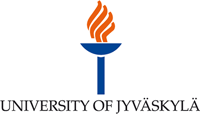Cutting edge Research meeting in Brussels, 14 Nov.
Summary of the Cutting-edge research meeting
The Action organised a Cutting edge researhc meeting The Cultural Dimension of Sustainable Developmenton the European Research Agenda in Brussels, 14th November, 2013.
The aim of the meeting was to present COST Action IS1007 to a number of relevant stakeholders, and to discuss and share ideas how to bring the topic of culture in the European research and policy arena. The participants of the meeting represented various organisations related to culture and science.
List of participants
Summary of the meeting
Dr. Marc Caball, Chair of the Domain Committee for Individuals, Societies, Cultures and Health introduced the COST, started the meeting by introducing the COST, the intergovernmental framework for transnational cooperation in science and technology. He emphasized that COST is about research networking and is not confined to European Countries. ISCH is the Domain with most submissions, but the one with least funding, which reveals the need of this kind of working model COST introduces. He noted that the COST Action IS1007 is important in particular to creating human capital and raising interest of a new generation of scholars in the field of culture and sustainability. Presentation Caball
Dr. Katriina Soini, Chair of the COST Action IS1007 briefly explained the background of the Action: Culture as a neglected topic in the sustainable development discourse and policy. She noted that the challenge to incorporate cultural aspects in the sustainability debate is due to the complexity of the concept of culture and sustainability. Furthermore, cultural sustainability may also challenge the institutionalized view of three-pillar-model of sustainability. The COST Action has taken an initiative to conceptualize the cuitural dimension of sustainable deveiopment, examine culturally sustainable policy practices and investigate frameworks for assessing impact of culture in sustainable development in various contexts through multi- and interdisciplinary approaches. Currently, the Action works with three approaches: culture as self-standing pillar of sustainability, culture as transversal; and culture as a fundamental issue in sustainability. Presentation Soini
Dr. Jasmina Kuka, Chair of the COST IS1007 Research Strategy Group introduced in more details the multidisciplinary and multisectoral expertise involved in the Action. She also emphasized the need for transdiciplinary and interdisciplinary approaches, including the interaction between researchers and practitioners. Presentation Kuka
Finally, Dr. Nancy Duxbury, Chair of the COST IS 1007 Policy Working Group described some initiatives related to culture and sustainable development beyond Europe, and in that way positioned the topic in the policy and research map at global level. Presentation Duxbury.
After the presentations, the representatives of the participating orgnisations introduced themselves and described their role and approach linked to the topic
The following main topics and suggestions raised up during the discussion:
- Given the broad and vague scope of culture, it is important to give concrete examples, which reveal, why culture needs to be taken into account in sustainable development policies and practices,
- Although culture is complex and multidisciplinary concept it is still crucial to “simplify” the concept of culture without reducing its multiple meanings
- In order to operationalise and illustrate the different roles of culture in sustainable development mini-narratives, as well as thorough analysis of both good and unsuccessful (or ‘bad’) practices of culture in sustainable development are useful.
- There is an urgent need to develop means (assessment methods, indicators) to reveal the impact of culture on development and cultural impacts of development to make the role of culture in development more visible to policy makers and practitioners for example in the context of cities
- As the topic is complex and abstract, it is crucial to clearly define the target audience, and to find means to communicate about the issue with their language
- Concerning the financial programmes, like Horizon 2020, it is necessary to explore how culture as an aspect of sustainable development could be introduced to different thematic fields (e.g. cities, transportation, energy policies). Besides Horizon there are other programmes like Marie Curie, which might be relevant for developing the topic further.
- Due to environmental and economic crises policy-makers are searching for new solutions. Therefore it is the momentum to introduce culture as an aspect of sustainability and to demonstrate the utility of research to substantiate the change that is needed.


